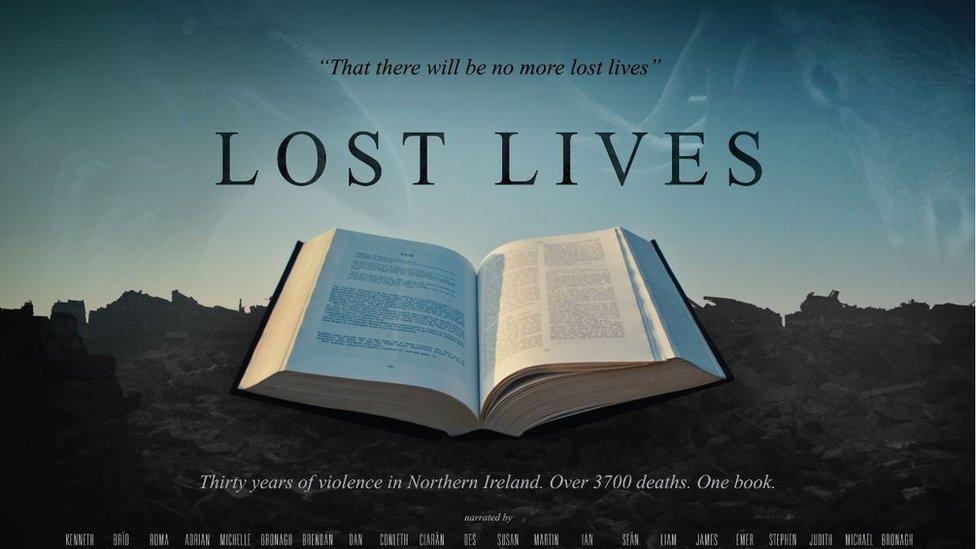The Troubles: 'Secondary victims' of conflict remembered in book
- Published
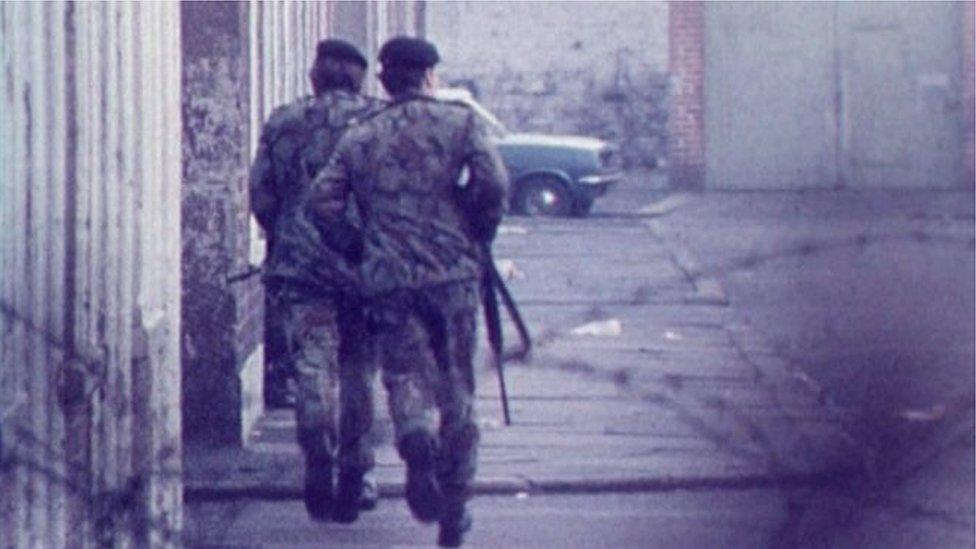
The conflict in Northern Ireland, known as The Troubles, lasted almost 30 years
The conflict in Northern Ireland, known as the Troubles, lasted almost 30 years and cost the lives of more than 3,500 people.
The Northern Ireland Office has estimated that another 40,000 people were injured.
The South East Fermanagh Foundation (SEFF) supports victims and survivors of republican and loyalist terrorism.
It says those statistics do not reveal the full story.
Many more lives were cut short through suicide, heart attacks, stillbirths, miscarriage and physical and psychological injuries, it added.
The foundation has published a book "The Wider Human Cost of the Northern Ireland Troubles".
It tells the stories of 26 families who suffered the premature death of loved ones who they describe as "secondary victims" of the Troubles.
Valerie Heatherington was nine when her father Alfie Woods, a part time member of the RUC, was murdered by an IRA landmine at Loughmacrory, County Tyrone in 1981.
Almost exactly a year later her mother died of a heart attack.
In the book she recalls the doctor saying she died from a broken heart.
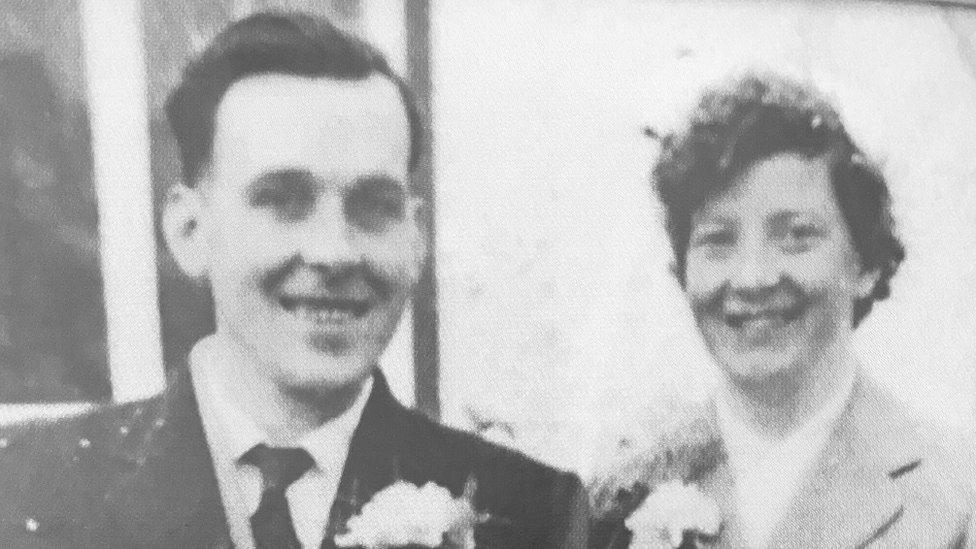
Valerie Heatherington's parents, Alfie and Mary Wood
Valerie told BBC Radio Ulster her mother "was living every day trying to deal with what had happened to daddy, she had lost the love of her life".
"It was a living nightmare the six of us being left without a daddy and then to go on then and lose mummy under a year later, it was just horrific," she added.
Another contributor is Martha O'Neill whose husband Eddie was killed by a bomb planted by the loyalist Ulster Volunteer Force in Parnell Street in Dublin in 1974.
Two of their five children were badly injured.
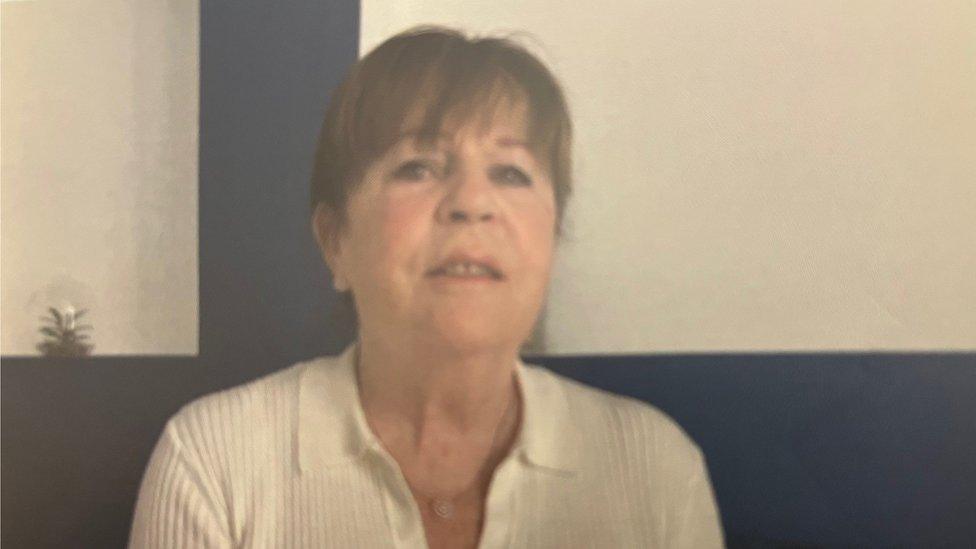
Martha O'Neill describes seeing her children fight for their lives
'Empty-handed and empty hearted'
In the book she describes how the trauma of her husband's death and watching two of her children fight for their lives led to her losing her unborn baby daughter.
"She was something positive to look forward to, and I had hoped she would give us all the reason to feel bright again and taking the children's minds off what had happened, but I never even got to see her," she said.
"Little Martha was born and died on the 1 August.
"I came out of the hospital empty-handed and empty hearted."
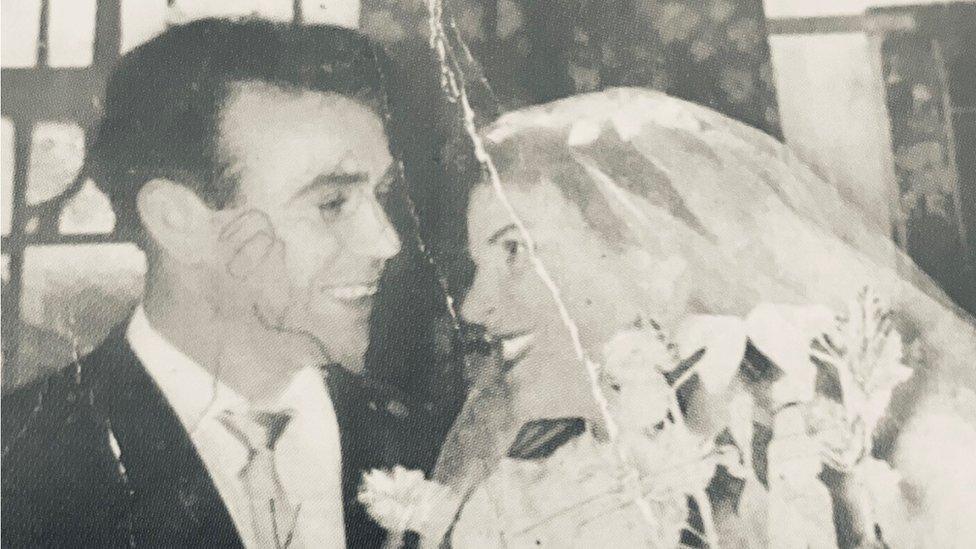
Eddie O'Neill and Martha O'Neill on their wedding day
SEFF's Director of Services, Kenny Donaldson, hoped the book has given a voice to people who have died indirectly as a result of the experience they endured.
He said the stories reflect a legacy of injustice and unfairness.
"It is by no means the totality of what has happened across the community, we acknowledge that," he said.
"But we want to see this taken forward by policymakers and a real effort made to better understand and quantify what we're dealing with in terms of the domino effect of the Troubles."
Retired consultant psychiatrist Dr Philip McGarry said there is a clear connection between bereavement and premature death.
"As a psychiatrist it's not at all surprising to me that we had this high level of death by physical causes as well as suicide after bereavement but when it's laid out as clearly as this it is again quite shocking.
He said he was "struck by the humanity, the generosity of spirit and the absence of bitterness on the part of people who have suffered so much".
To coincide with the book's publication a remembrance tree was planted in Holy Trinity Church of Ireland Graveyard in Lisnaskea.
Related topics
- Published31 January 2023
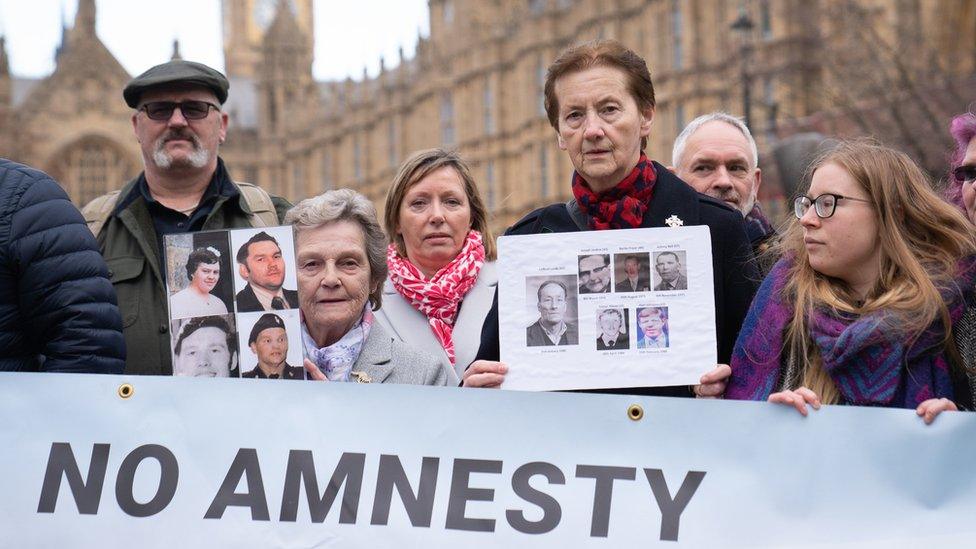
- Published13 January 2023

- Published15 February 2020
